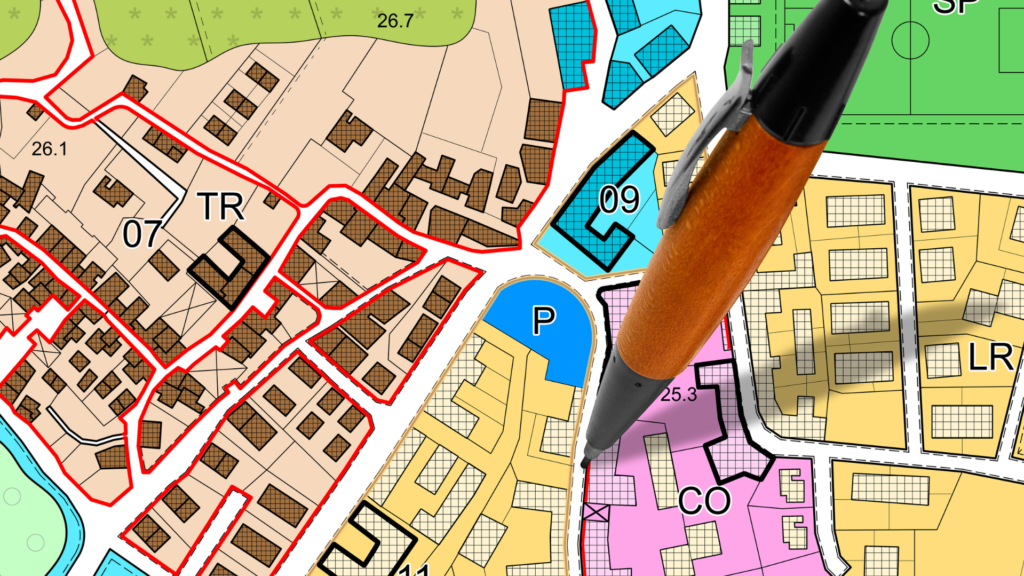Unlock the Secrets to the Process Of Buying Land

The process of buying land can be an exciting opportunity, whether for building a dream home, starting a business, or investing in real estate. However, the process is different from buying a house and can be more complex. This guide will walk you through the key steps involved in purchasing land, covering legalities, financing options, and vital checks to make your land purchase a success.
Step 1: Determine Your Purpose and Budget
Before you begin searching for land, it’s essential to define your purpose for the property. Whether it’s for residential, commercial, or agricultural use, your plans will influence the type of land you buy, zoning restrictions, and necessary infrastructure. Establish a budget that includes the land cost, legal fees, and potential development expenses, such as utilities or road access.

Step 2: Research Zoning and Land Restrictions
Every plot of land has a zoning classification that dictates how it can be used—residential, commercial, or agricultural. Before committing to a purchase, research the zoning laws in the area and ensure the land’s intended use aligns with these restrictions. You should also check for any easements or environmental protections that may limit your ability to develop or use the land as planned.
Step 3: Find the Right Property
Finding the right land requires considering factors such as location, size, and topography. Is the terrain suitable for your plans? Is it near essential amenities like roads, schools, or markets? Additionally, assess whether utilities like water, electricity, and sewage systems are available or if you will need to arrange installations, which can be expensive.

Step 4: Perform a Soil and Environmental Test
Before purchasing land, conducting a soil test is critical, especially if you plan to build. Soil quality affects the foundation’s stability, and poor conditions can lead to additional costs for groundwork. In addition, investigate potential environmental issues like flooding risks or proximity to protected wildlife areas.
Step 5: Secure Financing
Buying land is often seen as riskier than buying a developed property, so lenders may be more cautious. Common financing options include construction loans, lot loans, or owner financing. A construction-to-permanent loan is popular if you plan to build soon after purchase, combining the cost of the land and construction.
Step 6: Hire a Real Estate Agent and Attorney
A qualified real estate agent familiar with land transactions can help you find listings, negotiate with sellers, and navigate local regulations. Additionally, working with a real estate attorney ensures that your interests are protected during the transaction, especially regarding contract details and title searches.
Step 7: Conduct a Title Search and Obtain Insurance
A thorough title search verifies that the land is free from liens or ownership disputes. Title insurance protects you from future legal challenges to your ownership. It’s essential to perform this step before finalizing any purchase.
Step 8: Make an Offer
Once you’ve found the right property, you can make an offer. Your offer should include any contingencies, such as a satisfactory title search or financing approval. This step may also involve negotiations on price, especially if there are concerns regarding the land’s condition.
Step 9: Complete Due Diligence
After your offer is accepted, the due diligence period allows you to perform inspections, confirm zoning, and secure financing. This is a critical time to ensure that all aspects of the property meet your needs and expectations.
Step 10: Finalize the Sale
Once all contingencies are met, and financing is in place, you can close the deal. Your attorney will oversee the final paperwork, including the deed transfer, and you’ll officially become the land’s owner.
Frequently Asked Questions (FAQs)
1. What are the key considerations when buying land?
Key considerations include zoning restrictions, road access, availability of utilities, and environmental factors such as flood zones or protected areas.
2. How do I finance a land purchase?
Common financing options include construction-to-permanent loans, lot loans, or seller financing. The financing option may depend on your plans for the land and your financial situation.
3. What is a title search, and why is it important?
A title search verifies the land’s ownership history and checks for liens or claims against the property. It’s essential to ensure a clear title before purchasing land.
4. Can I buy land without a real estate agent?
While it is possible to buy land without an agent, it’s recommended to work with professionals, especially in complex transactions involving zoning laws, environmental issues, and title searches.
5. Are there restrictions on building on all types of land?
Yes, zoning laws and environmental regulations may restrict what you can build or use the land for. Always check with local authorities to understand the limitations before purchasing.
6. How long does the process of buying land take?
The process can take several months, depending on the complexity of due diligence, financing, and legal requirements.
Final Thoughts
By following these steps and ensuring thorough research, you’ll be well-prepared to navigate the complexities process of buying land. Working with the right professionals, such as a real estate agent and attorney, can help safeguard your investment and make the process smoother.
Keep Learning
>> Buying Land As An Investment: Master the Art for Growth
>> Guide to Buying Land for a Farm: Transform Dream Into Reality
